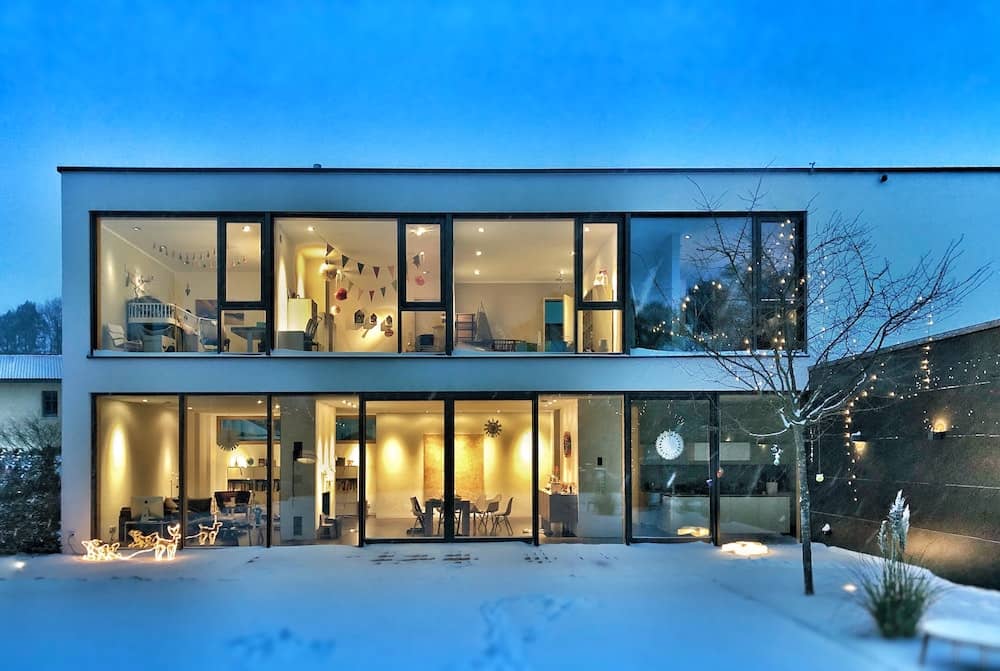Having a safe, comfortable and functional home is essential for a happy life. But what are the most important things your house should have? From safety features to energy efficiency, many factors come into play when considering how well-equipped your home is. So here are seven of the most important elements every home needs to be truly livable and enjoyable.
1. HVAC System
A heating, ventilation, and air conditioning system (HVAC) is essential for controlling the temperature in your home. It not only provides comfort but also helps to regulate indoor air quality. Make sure to contact the right heating company for installation, maintenance, and repairs when needed. Keep in mind that an HVAC system needs regular maintenance to keep it running efficiently and effectively. If you want to save money on your energy bills, consider using a programmable thermostat to control the temperature in different parts of your home.
2. Insulation
Proper insulation is key to keeping your utility bills low and ensuring a comfortable indoor environment. Make sure that walls, ceilings, pipes, and attics are adequately insulated so that heat can’t escape. You should also check around doors and windows for gaps where air can seep in or out. If you have an older home with inadequate insulation, consult an expert about what type of insulation would be best for your situation. Insulation requires an initial investment, but it can save you money in the long run by reducing your heating and cooling costs.
3. Lighting
Using energy-efficient lighting fixtures is another great way to reduce utility bills. LED bulbs consume less electricity than traditional incandescent bulbs, and they last longer too. Consider installing motion sensor lights for outside areas like porches or driveways – this will help you to stay safe while also saving energy. If you have rooms that don’t get much natural light, add lamps or other ceiling fixtures with dimmers so that you can adjust the brightness when needed. Taking these simple steps can make a big difference in reducing your monthly electric bill.
4. Appliances
Using appliances efficiently is another important step in reducing energy costs. Invest in high-efficiency models whenever possible and look for the Energy Star label when shopping. It’s also important to unplug appliances when they are not in use and to avoid using too many at once – this can cause a strain on your home’s electrical system. Be mindful of how you use large appliances like dishwashers, dryers, and refrigerators so that you don’t waste energy unnecessarily.
5. Water Heater
Your water heater is one of the biggest energy consumers in your home, so it pays to be mindful of how much hot water you’re using. Consider installing a tankless water heater if you have an older unit that needs replacing – these smaller units provide hot water on demand, helping you save money on energy bills. It’s also a good idea to wrap your water heater in an insulated blanket to keep it from losing heat and wasting energy. With just a few simple steps, you can improve the efficiency of your home and reduce your utility bills.
6. Secure Windows and Doors
Windows and doors are major sources of air leaks, so make sure they are properly sealed with weather stripping or caulk. You should also invest in double-paned windows with low emissivity (Low-E) coating, which will help prevent heat loss during colder months. Replacing old doors with new ones that have improved insulation is another great way to reduce air leakage and control temperature within your home. Taking these steps will help you save money on utility bills while also providing better comfort. And while you’re at it, make sure to check for any drafts around windows and doors and seal them up too.
7. Smart Technology
 Smart technology can help you manage your energy consumption more effectively. With a programmable thermostat, you can easily adjust the temperature in different parts of your home at different times of the day. This will help keep heating and cooling costs low while also providing better comfort. Smart power strips can be used to turn off appliances when they are not in use, helping reduce electricity usage even further. Investing in these tools is an easy way to save money on utility bills and improve the efficiency of your home.
Smart technology can help you manage your energy consumption more effectively. With a programmable thermostat, you can easily adjust the temperature in different parts of your home at different times of the day. This will help keep heating and cooling costs low while also providing better comfort. Smart power strips can be used to turn off appliances when they are not in use, helping reduce electricity usage even further. Investing in these tools is an easy way to save money on utility bills and improve the efficiency of your home.
By keeping these things in mind, you can ensure that your home has everything it needs. From insulation to lighting, appliances, and more, you can find simple solutions that will help you save money on utility bills while also increasing your home’s efficiency. Taking the time to invest in these improvements now will help ensure a comfortable living environment for years to come.

